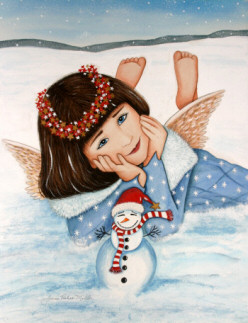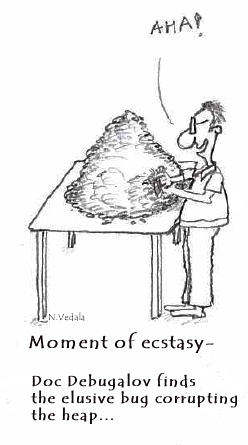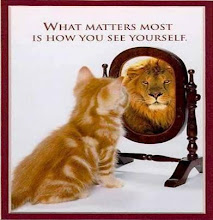
The SQ3R method has been a proven way to sharpen study skills. SQ3R stands for Survey, Question, Read, Recite, Review. Take a moment now and write SQ3R down. It is a good slogan to commit to memory to carry out an effective study strategy.
Survey - get the best overall picture of what you're going to study BEFORE you study it an any detail. It's like looking at a road map before going on a trip. If you don't know the territory, studying a map is the best way to begin.
Question - ask questions for learning. The important things to learn are usually answers to questions. Questions should lead to emphasis on the what, why, how, when, who and where of study content. Ask yourself questions as you read or study. As you answer them, you will help to make sense of the material and remember it more easily because the process will make an impression on you. Those things that make impressions are more meaningful, and therefore more easily remembered. Don't be afraid to write your questions in the margins of textbooks, on lecture notes, or wherever it makes sense.
Read - Reading is NOT running your eyes over a textbook. When you read, read actively. Read to answer questions you have asked yourself or questions the instructor or author has asked. Always be alert to bold or italicized print. The authors intend that this material receive special emphasis. Also, when you read, be sure to read everything, including tables, graphs and illustrations. Often times tables, graphs and illustrations can convey an idea more powerfully than written text.
Recite - When you recite, you stop reading periodically to recall what you have read. Try to recall main headings, important ideas of concepts presented in bold or italicized type, and what graphs charts or illustrations indicate. Try to develop an overall concept of what you have read in your own words and thoughts. Try to connect things you have just read to things you already know. When you do this periodically, the chances are you will remember much more and be able to recall material for papers, essays and objective tests.
Review - A review is a survey of what you have covered. It is a review of what you are supposed to accomplish, not what you are going to do. Rereading is an important part of the review process. Reread with the idea that you are measuring what you have gained from the process. During review, it's a good time to go over notes you have taken to help clarify points you may have missed or don't understand. The best time to review is when you have just finished studying something. Don't wait until just before an examination to begin the review process. Before an examination, do a final review. If you manage your time, the final review can be thought of as a "fine-tuning" of your knowledge of the material. Thousands of high school and college students have followed the SQ3R steps to achieve higher grades with less stress.
Reading
A primary means by which you acquire information is through reading. In college you're expected to do much more reading than in high school. Don't assume just because you've "read" the assignments that is the end of it. You must learn to read with a purpose. In studying, you may read the same assignment three or four times, each time with a different purpose. You must know before you begin reading what your purpose is, and read accordingly.
Getting the Main Idea
Getting the main idea in reading is central to effective studying. You must learn what the author's central idea is, and understand it in your own way. Every paragraph contains a main idea. Main ideas are perfect for outlining textbooks. Make it a habit to find the main idea in each paragraph you read.
Extracting Important Details
Extracting important details means that you locate in your reading the basis for main ideas. There is usually one important detail associated with every main idea. The more important details you can identify, the easier it will be to review for examinations because you have made a link between an idea and information that supports it. The more links you can make between details and ideas, as well as ideas themselves, the more powerful will be the efforts of your study.
Don't Read Aloud to Yourself
Generally, reading aloud to yourself does not help you study more effectively. If you move your lips while you read, you're not reading efficiently. If you read aloud or move your lips while you're reading, you are reading slowly, so stop moving your lips. Try putting a finger over your lips. Your finger will remind you not to move your lips. Make an effort to read faster and retain more - after a while, you'll be surprised how little effort it will take.
Taking Notes
Like reading, note-taking is a skill which must be learned and refined. Almost invariably, note taking, or the lack of it, is a constant deficiency in the study methods of many high school and college students. Learning the ingredients of good note taking is rather easy; applying them to your own situation depends on how serious you are in becoming a successful student.
Where to Keep Notes
You must learn to keep notes logically and legibly. Remember, if you can't read your own writing a few days after taking notes, they are of little use. By all accounts, the best place to keep notes is in a loose-leaf notebook. Use dividers to separate the different classes you take. Make it a habit of using your notebook to record ALL your notes. If you're caught without your notebook and need to take notes, always have a supply of loose-leaf paper with you. Insert your note papers into the notebook as soon as you can. Be sure to buy a good notebook, as it will get a lot of wear and tear.
Outlining Textbooks
First of all, don't underline. Use a highlighter. Experience has shown that text passages highlighted are more easily remembered than the same passages underlined. In outlining a text, don't just read along and highlight what seem to important words. That technique rarely works. The act of outlining works much better.





















































